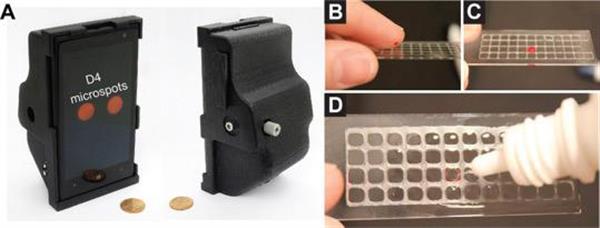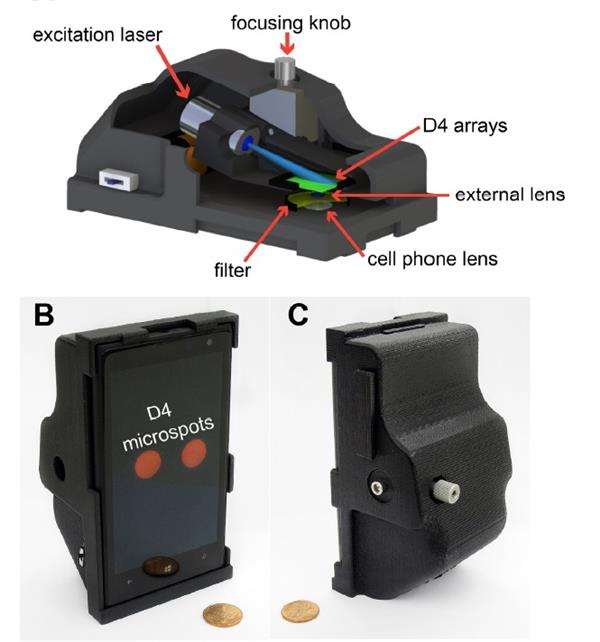Biomedical engineers at North Carolina’s Duke University created “D4 assay”, a tool to detect signs of diseases. The latter comprises an inkjet-printed filled with antibodies and a 3D printed smartphone device.

What’s peculiar about this method is that researchers implemented a way (“lab-on-a-chip”) to measure levels of antigens, which are not always found in laboratory testing equipment. According to the research, clinicians will save time (since the detection is done in 15 minutes) without jeopardizing sensitivity or accuracy.
“The D4 assay enables us to conduct high-performance diagnostic testing with minimal resources, making it a promising platform for increasing access to sensitive and quantitative diagnostic tools,” said Angus Hucknall, co-author of the paper.

However, with regards to the complexity and the shape of the device, Ashutosh Chilkoti, chair of the Department of Biomedical Engineering (BME) at Duke and senior author on the paper said: “the real significance of the assay is the polymer brush coating, the polymer brush allowed us to store all of the tools we need on the chip while maintaining a simple design.”
Last, researchers estimate that the complete device including the 3D printed mobile phone attachment would cost less than 30$ if it is produced on a large scale.
The complete research can be read here.
For further information about 3D Printing, follow us on our social networks and subscribe to our newsletter!
//pagead2.googlesyndication.com/pagead/js/adsbygoogle.js
(adsbygoogle = window.adsbygoogle || []).push({});





